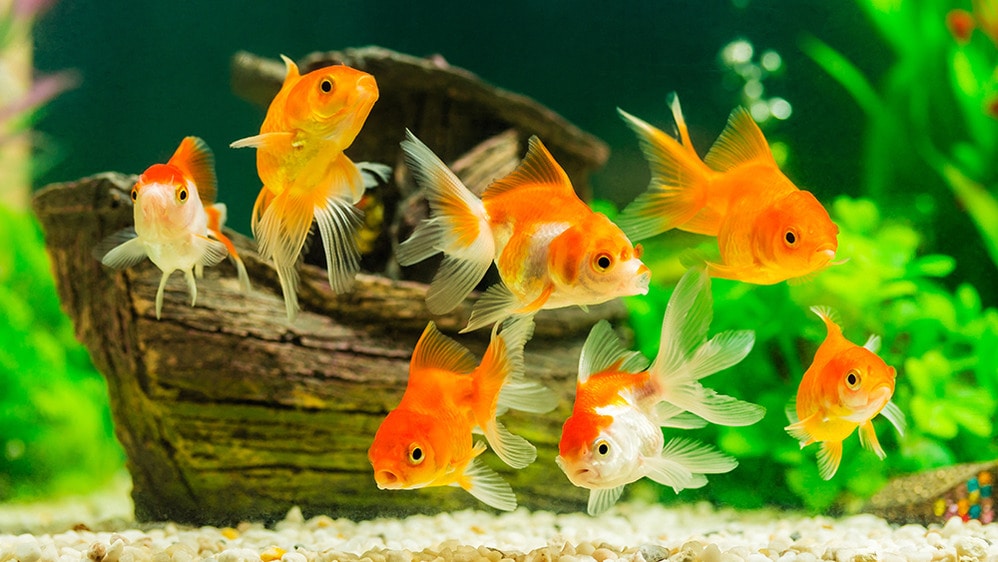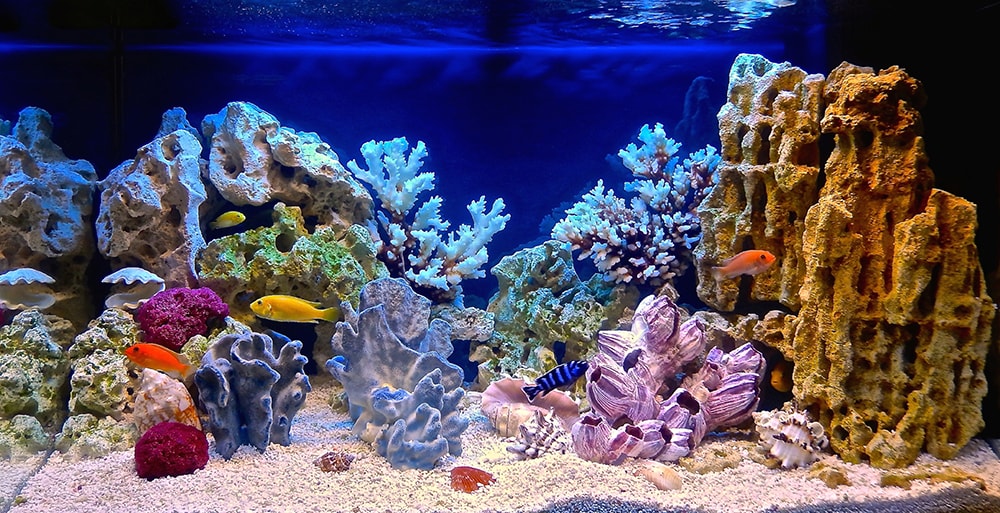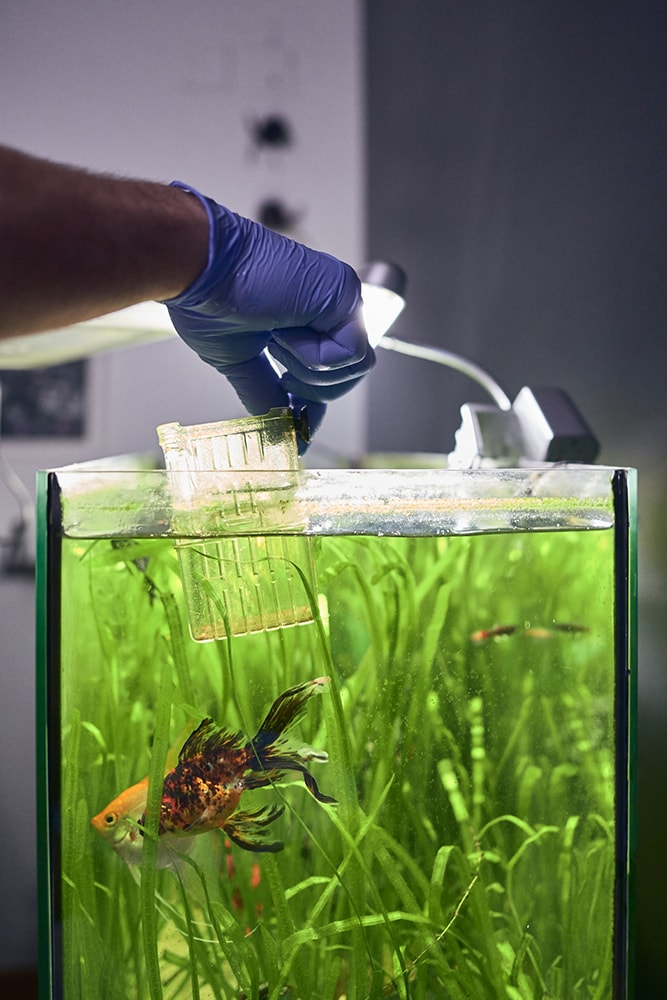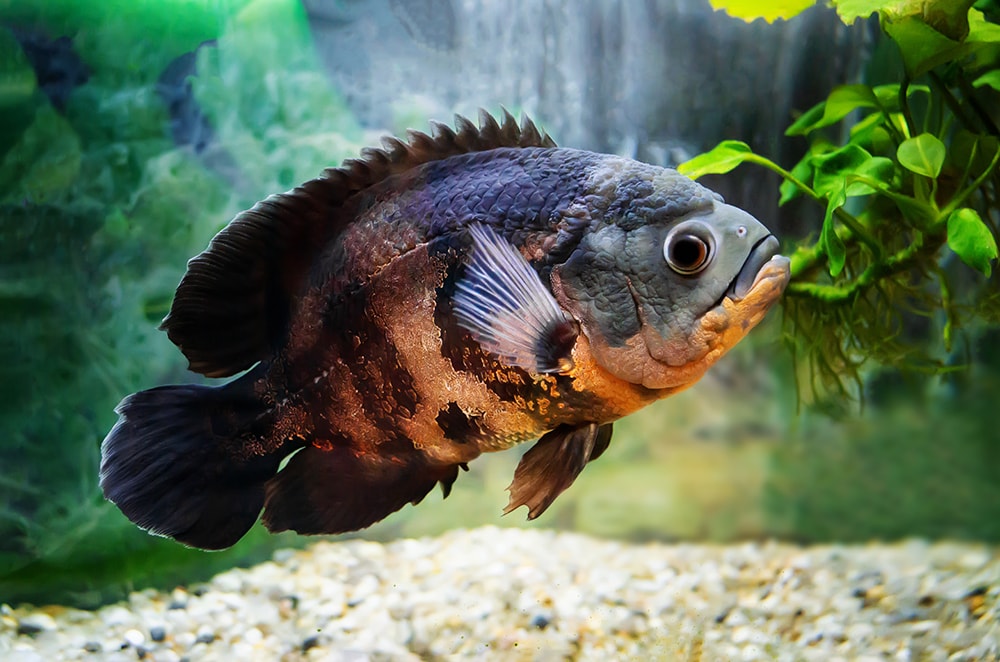What to know
- Fish can sometimes spread harmful germs that can make people sick.
- Tank water and items in tanks can be contaminated with germs.
- Wash your hands after feeding fish or handling their supplies, including their tank and items in their tank.

Overview
Millions of households in the United States keep aquarium fish. Fish can make great pets for people with allergies to other pets and they've been shown help to help reduce stress.
Although fish can make entertaining and calming pets, fish owners should be aware that fish sometimes carry germs that can make people sick. Although rare, germs from fish and the water they live in can cause a variety of illnesses in people.
Diseases
Below are certain diseases that can be spread by pet fish.
- Aeromoniasis
- Burkholderia pseudomallei
- Edwardsiellosis
- Erysipelothrix
- Klebsiella
- Mycobacteriosis (Fish Tank Granuloma, Swimming Pool Granuloma)
- Salmonella infection
- Streptococcus iniae
- Vibriosis
How to stay healthy around fish

Before buying a pet fish, make sure a fish is the right type of pet for your family. Be aware that pet fish can sometimes spread germs to people. Children younger than 5 years old, adults 65 or older, and people with weakened immune systems are more likely to get severe illness from germs fish can carry.
Wash your hands
You don't have to touch a fish to get sick from the germs it can carry. Fish tanks, equipment, and tank water can be contaminated with germs. The best way to prevent illness from fish and their environment is to wash your hands often.
- Wash your hands with soap and running water:
- Before and after touching or caring for fish
- After feeding your fish
- After handling your fish's equipment (for example, rocks, tank decorations, tank water)
- After cleaning your pet's tank
- Before eating and drinking
Use hand sanitizer with at least 60% alcohol if soap and water are not readily available. Supervise young children when they use hand sanitizer to prevent swallowing alcohol.
Safely clean and maintain your fish tank

Tank water and items in your fish tank can be contaminated with germs.
- Wear gloves when cleaning or caring for your aquarium, especially if you have cuts or wounds on your hands or if you plan to work with rough rocks or spiny fish.
- Dump tank water and clean aquarium items in a bathtub, laundry sink, or outside instead of a kitchen sink when possible.
- Clean and disinfect sinks and bathtubs after using them to dump aquarium water or clean aquarium items.
- People with weakened immune systems should let others in the household care for the fish tank when possible. If this isn't possible, they should wear gloves.
- Don't let children younger than 5 years old clean or handle aquarium items.
Prevent scratches and cuts
Some larger fish have sharp points in their fins that could scratch or damage your skin. Although it doesn't happen often, germs can spread from fin scratches or scrapes from the gravel or rocks in a tank, even when the wound does not seem deep or serious.
What to do if you get scratched or cut
If you get a scratch or cut while caring for pet fish:
- Wash your wounds with soap and water immediately.
- Seek medical attention:
- If the wound becomes red, painful, warm, or swollen, or
- If the wound is serious (uncontrolled bleeding, loss of function, extreme pain, or there is muscle or bone exposure).
- If you seek medical attention, tell your healthcare provider you had contact with fish and aquariums.
Don't buy dangerous fish
How to keep fish healthy

Before bringing home a pet fish, research what types of fish and aquariums are suitable for your family. Know that some fish can require more extensive care than others, and some fish can live a very long time. Certain types of fish require more extensive care and supplies than others.
Before choosing a fish
Learn about the different types of aquariums and their maintenance needs. Work with pet store staff to decide if a fresh or saltwater tank is right for you. Saltwater tanks need more maintenance than freshwater tanks. Match the size of the tank to the space available in your home and to the amount of time you have to maintain it.
Consider purchasing a second aquarium to be used when you're cleaning your first tank, or to house new fish before you place them in your established tank. Having a second tank to temporarily house fish may help reduce their stress and disease. Once you've decided what type of aquarium you want, learn how to set it up properly.
Ask your veterinarian about the proper setup for your aquarium, the types of fish you should keep, as well as food, care, and environmental requirements for your fish.
Think about
- Tank size
- Gravel type
- Plants
- Water temperature
- Lighting (UV, etc.)
- Aquarium filters and pumps
- Methods to treat the water (chemically, etc.)
- Frequency of tank cleaning and maintenance
- Equipment and accessories
Before bringing fish home, make sure your aquarium is ready. Ask your veterinarian about "cycling a tank" to get the bacteria and nitrogen levels balanced. Learn which fish can go in the aquarium you have. Most fish live in either saltwater or freshwater, not both.
Consider the number of fish to keep in your tank; a good standard is 1 inch of fish per gallon of water. Don't forget to research which species of fish can be in the same tank together and what types of food they will need. Some types of fish, like male betta fish, can't be in the same aquarium together because they will fight.
How to choose a pet fish
Pick fish that are active in their tanks in the pet store. Compare the fish to those of the same type around it. Is it acting like the others or is it off by itself? Is it able to swim normally?
Don't select fish from a tank that has a high number of dead fish. Healthy fish should have smooth, sleek, shiny scales that aren't discolored. Their bodies should not have any bumps, and their fins should be intact.
Bringing your new fish home
When bringing a new fish home, it's very important to acclimate it to your aquarium water. Purchased fish will often be given to you in a clear bag with water from their tank at the store. This water will be a different temperature than your aquarium water at home.
To acclimate your fish:
- Place the entire bag, still intact, in your aquarium to float at the surface for about 30 minutes to an hour to acclimate the fish to the temperature of the tank.
- Then, carefully open and gradually pour the bag to release the fish into your tank.
- Do not remove the fish from the bag with a small net as this may injure the fish.
- Try not to pour too much water from the bag into your aquarium at home because of the possible germs it may contain.
Monitor your pet's health

Check your fish daily for signs of illness. A sick fish may swim abnormally, have red, brown, or white splotches, not eat, or be swollen. If a fish in your tank looks sick, it's best to remove it and place it in a tank by itself. This will help prevent other fish in your main aquarium from getting sick.
Talk to a veterinarian experienced in fish medicine if you have questions about your pet's health.
Promptly remove any dead fish from your aquarium so disease doesn't spread to other fish.
Even though fish appear healthy, they may still spread germs to humans. If you become sick shortly after purchasing new fish or cleaning your aquarium, make sure to tell your healthcare provider that you have a pet fish.
What to do if you no longer want your pet fish
Don't release unwanted pets
Find a new home for your fish:
- Consider giving your pet to another fish hobbyist.
- Contact a local aquarium, school, or zoo to see if they would accept your pet.
- Talk to your veterinarian. They may be able to help you find a new home for your fish.
Resources
Selecting and caring for pet fish
- Selecting a Fish (American Veterinary Medical Association)
- Aquarium Fish (Habitattitude)
- Find a Fish Vet (American Association of Fish Veterinarians)
